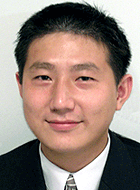Yixin Chen, Ph.D., assistant professor of computer science and engineering, is one of five faculty nationwide to receive a 2007 Microsoft Research New Faculty Fellowship.

The fellowship is one of the most prestigious awards for young computer scientists. Chen, who joined the faculty in 2005, is the first WUSTL researcher to be awarded the fellowship.
It provides an unrestricted cash gift of $200,000 and other resources, such as software, conference travel and the opportunity to engage in research with Microsoft Corp. personnel for the next two years.
Now in its third year, the fellowship program is administered by Microsoft Research’s External Research & Programs group as part of its mission to support and collaborate with the academic community. The program is designed to identify and assist exceptional first-, second- and third-year professors engaged in innovative computing research.
Each university in the nation may nominate one candidate, from which 10 are flown to Microsoft in Redmond, Wash., to give a five-minute presentation to a panel of computer scientists, three from Microsoft and three from academia.
Chen won the fellowship for his research in nonlinear optimization, which has a number of applications in automated planning, medical operations, computational biology and engineering design.
Chen developed an algorithm that reduces the time involved in solving a nonlinear optimization problem from a week to 100 seconds.
Working with Joseph O. Deasy, Ph.D., associate professor of radiation oncology in the School of Medicine, Chen is applying the algorithm to reduce the complexity of radiation therapy by letting multiple steps in procedures unfold rapidly and efficiently, minimizing tissue damage.
Similarly, Chen’s technology can be applied to NASA software so that the decision procedures that rovers and satellites do in two hours could be executed in 30 seconds.
“The goal is that, by reducing the computational complexity of nonlinear optimization, we will develop fast and robust decision-making tools and significantly extend the ways that computing can be used in medical, scientific and engineering applications,” Chen said.